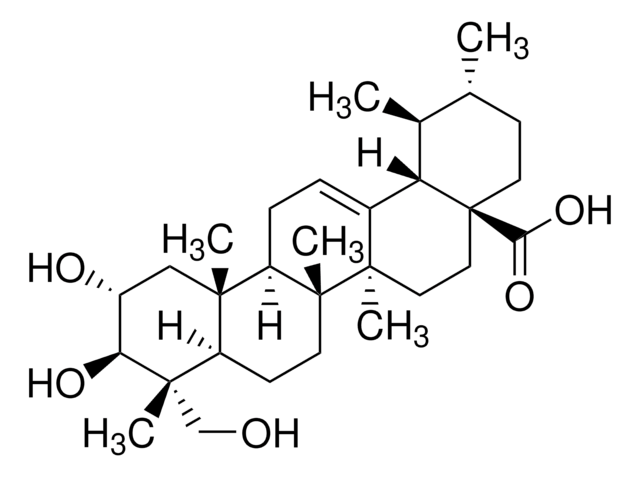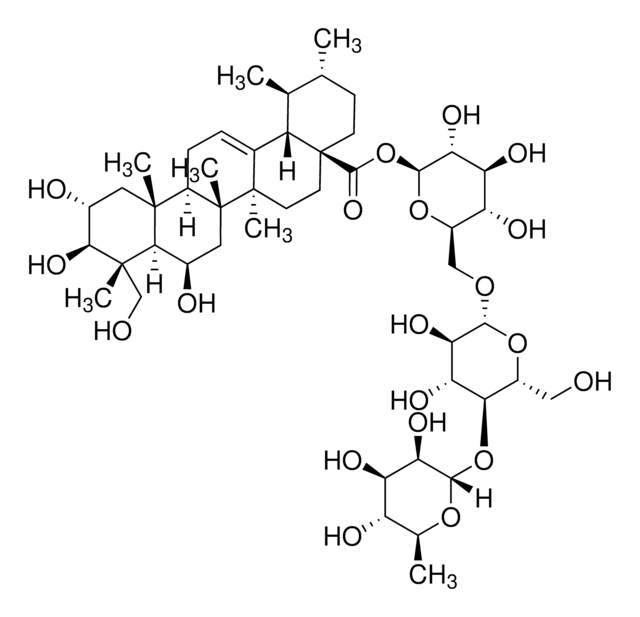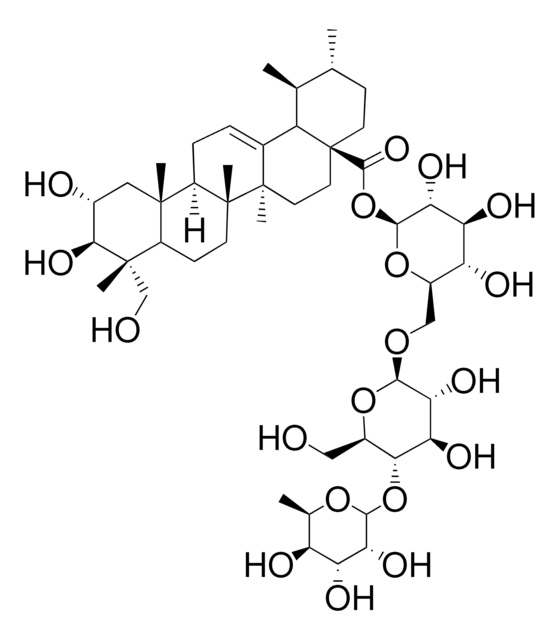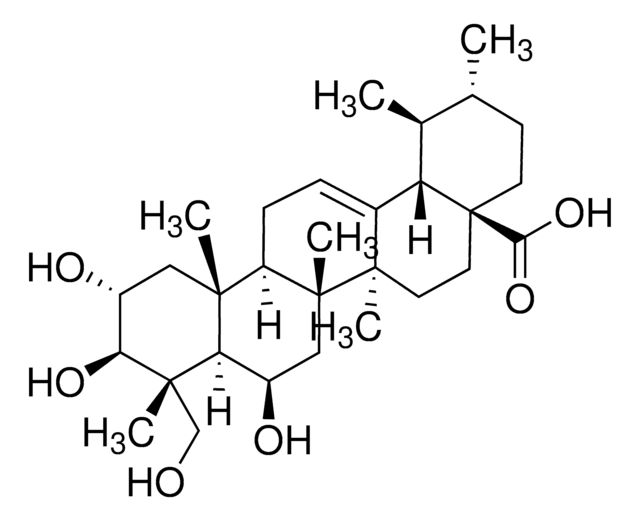89773
Asiatic acid
analytical standard
Synonym(s):
2α,23-Dihydroxyursolic acid, Dammarolic acid, NSC 166063
About This Item
Recommended Products
grade
analytical standard
Quality Level
Assay
≥95.0% (HPLC)
shelf life
limited shelf life, expiry date on the label
technique(s)
HPLC: suitable
gas chromatography (GC): suitable
mp
325-330 °C (lit.)
application(s)
food and beverages
format
neat
SMILES string
C[C@@H]1CC[C@@]2(CC[C@]3(C)C(=CC[C@@H]4[C@@]5(C)C[C@@H](O)[C@H](O)[C@@](C)(CO)[C@@H]5CC[C@@]34C)[C@@H]2[C@H]1C)C(O)=O
InChI
1S/C30H48O5/c1-17-9-12-30(25(34)35)14-13-28(5)19(23(30)18(17)2)7-8-22-26(3)15-20(32)24(33)27(4,16-31)21(26)10-11-29(22,28)6/h7,17-18,20-24,31-33H,8-16H2,1-6H3,(H,34,35)/t17-,18+,20-,21-,22-,23+,24+,26+,27+,28-,29-,30+/m1/s1
InChI key
JXSVIVRDWWRQRT-UYDOISQJSA-N
Looking for similar products? Visit Product Comparison Guide
Application
- Anticancer agents
- Glycogen phosphorylase inhibitors
- Hepatoprotectants
Biochem/physiol Actions
Storage Class Code
11 - Combustible Solids
WGK
WGK 3
Flash Point(F)
Not applicable
Flash Point(C)
Not applicable
Regulatory Listings
Regulatory Listings are mainly provided for chemical products. Only limited information can be provided here for non-chemical products. No entry means none of the components are listed. It is the user’s obligation to ensure the safe and legal use of the product.
JAN Code
89773-BULK:
89773-VAR:
89773-10MG:
Choose from one of the most recent versions:
Already Own This Product?
Find documentation for the products that you have recently purchased in the Document Library.
Our team of scientists has experience in all areas of research including Life Science, Material Science, Chemical Synthesis, Chromatography, Analytical and many others.
Contact Technical Service





